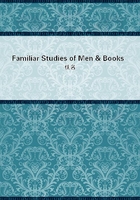
第98章
The actual date of the marriage is uncertain but by September 1566, at the latest, the Reformer was settled in Geneva with his wife. There is no fear either that he will be dull; even if the chaste, thrifty, patient Marjorie should not altogether occupy his mind, he need not go out of the house to seek more female sympathy; for behold! Mrs. Bowes is duly domesticated with the young couple. Dr. M'Crie imagined that Richard Bowes was now dead, and his widow, consequently, free to live where she would; and where could she go more naturally than to the house of a married daughter? This, however, is not the case. Richard Bowes did not die till at least two years later. It is impossible to believe that he approved of his wife's desertion, after so many years of marriage, after twelve children had been born to them; and accordingly we find in his will, dated 1558, no mention either of her or of Knox's wife. (1) This is plain sailing.
It is easy enough to understand the anger of Bowes against this interloper, who had come into a quiet family, married the daughter in spite of the father's opposition, alienated the wife from the husband and the husband's religion, supported her in a long course of resistance and rebellion, and, after years of intimacy, already too close and tender for any jealous spirit to behold without resentment, carried her away with him at last into a foreign land. But it is not quite easy to understand how, except out of sheer weariness and disgust, he was ever brought to agree to the arrangement.
Nor is it easy to square the Reformer's conduct with his public teaching. We have, for instance, a letter by him, Craig, and Spottiswood, to the Archbishops of Canterbury and York, anent "a wicked and rebellious woman," one Anne Good, spouse to "John Barron, a minister of Christ Jesus his evangel," who, "after great rebellion shown unto him, and divers admonitions given, as well by himself as by others in his name, that she should in no wise depart from this realm, nor from his house without his license, hath not the less stubbornly and rebelliously departed, separated herself from his society, left his house, and withdrawn herself from this realm." (2) Perhaps some sort of license was extorted, as I have said, from Richard Bowes, weary with years of domestic dissension; but setting that aside, the words employed with so much righteous indignation by Knox, Craig, and Spottiswood, to describe the conduct of that wicked and rebellious woman, Mrs. Barron, would describe nearly as exactly the conduct of the religious Mrs. Bowes. It is a little bewildering, until we recollect the distinction between faithful and unfaithful husbands; for Barron was "a minister of Christ Jesus his evangel," while Richard Bowes, besides being own brother to a despiser and taunter of God's messengers, is shrewdly suspected to have been "a bigoted adherent of the Roman Catholic faith," or, as Know himself would have expressed it, "a rotten Papist."
(1) Mr. Laing's preface to the sixth volume of Knox's Works, p. lxii.
(2) Works. vi. 534.
You would have thought that Know was now pretty well supplied with female society. But we are not yet at the end of the roll. The last year of his sojourn in England had been spent principally in London, where he was resident as one of the chaplains of Edward the Sixth; and here he boasts, although a stranger, he had, by God's grace, found favour before many.
(1) The godly women of the metropolis made much of him; once he writes to Mrs. Bowes that her last letter had found him closeted with three, and he and the three women were all in tears. (2) Out of all, however, he had chosen two. "GOD," he writes to them, "BROUGHT US IN SUCH FAMILIAR ACQUAINTANCE, THAT YOUR HEARTS WERE INCENSED AND KINDLED WITH A SPECIAL CARE OVER ME, AS A MOTHER USETH TO BE OVER HER NATURAL CHILD; and my heart was opened and compelled in your presence to be more plain than ever I was to any." (3) And out of the two even he had chosen one, Mrs. Anne Locke, wife to Mr. Harry Locke, merchant, nigh to Bow Kirk, Cheapside, in London, as the address runs. If one may venture to judge upon such imperfect evidence, this was the woman he loved best. I have a difficulty in quite forming to myself an idea of her character. She may have been one of the three tearful visitors before alluded to; she may even have been that one of them who was so profoundly moved by some passages of Mrs.
Bowes's letter, which the Reformer opened, and read aloud to them before they went. "O would to God," cried this impressionable matron, "would to God that I might speak with that person, for I perceive there are more tempted than I."